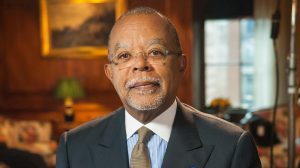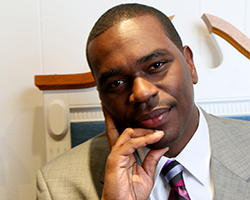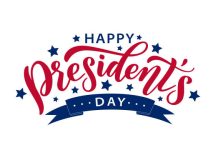As a young man, my father-in-law, an observant Jew from Brooklyn New York, would secretly sneak out of his home to attend worship services at Black churches. Although he attended primarily to enjoy the uplifting hymns of the gospel choirs, I also suspect he got something out of the fellowship and deep abiding sense of community offered there.

And although Malcolm X debated whether Christianity was a positive force in the Black community, a careful study of African American history puts the church in sharp focus as a crucial institution in Black neighborhoods, one of both communion and community. In his article The Black Church: This is Our Story, This is Our Song by Henry Louis Gates Jr., the Alphonse Fletcher University Professor and Director of the Hutchins Center for African & African American Research at Harvard University, states this sentiment in unabashed terms. “The importance of the role of the Black Church at its best cannot be gainsaid in the history of the African American people. Nor can it be underestimated.”
Black Churches and Their Leaders
From Frederick Douglass to Rev. Adam Clayton Powell Jr., to Dr. Martin Luther King Jr., to the recently passed John Lewis, the Black church is rich in its scope and aim to serve as the epicenter for civil-rights advocacy while simultaneously providing spiritual and often psychological and material sustenance to its parishioners. According to Jamar A. Boyd II, a graduate of the DeWitt Proctor School of Theology at Virginia Union University, “Unique to black churches and clergy is the engagement of transforming community, meeting the needs of their congregations, and truly manifesting the meaning of service.”
There is plenty of data to support the claim of the importance of the church in Black communities. As the Brookings Institute reports in the article Supporting Black Churches: Faith, Outreach, and the Inner-City Poor, “Black Americans are in many ways the most religious people in America. Some 82 percent of blacks (versus 67 percent of whites) are church members; 82 percent of blacks (versus 55 percent of whites) say that religion is ‘very important in their life.’ Eighty-six percent of blacks (versus 60 percent of whites) believe that religion ‘can answer all or most of today’s problems.’”

This rich history continues today. As Gilford T. Monrose, founder of Brooklyn Center of Quality Life and Pastor at Mt. Zion Church of God 7th Day, points out, “The role of the modern church in the life of the 21st-century believer is critical because it fills a void only the church can.” Monrose paints the need for the church in simple, accessible terms: “Many churchgoers are struggling to make ends meet in their everyday lives, and we feel the pinch of reality just like everyone else. Believers are not exempt from trials of the world. We are living in perilous and drastic times. Drastic times call for drastic measures. Targeted small groups should be implemented in churches to be available to meet the needs in each believer’s life.”
Latino Churches
And the primacy of the church is also important to Latino communities as well. “Besides sharing a common cultural heritage, Hispanics/Latinos share a common faith with deep Christian roots, particularly in the Catholic tradition. Such Catholic identity, rich with popular expressions and traditions, was passed down from generation to generation among the people despite the pressures of cultural assimilation that found its way even into the Church,” writes Alejandro Aguilera-Titus, M.A. and Allan Figueroa Deck, SJ, Ph.D., in their publication Hispanic/Latino Presence in the USA and the Church. And in the article Latino Immigrants Are Evangelizing America, Bekah McNeel states, “Since the Latino community faces more marginalization than the average evangelical congregation in the US, their churches have unique needs and assets in ministry.”
Black Churches: Part of the Solution
All of this history and tradition point to a common-sense set of solutions to address the pressing needs of inner-city communities of color: Fund the churches to empower the community. Yes, I am saying this not only as a practical matter, but also as a philosophical stance, one that can, along with my recommendations from my article The Inner City: Solutions to Save America’s Soul (Article 1 – Rational and Philosophical Orientation), rapidly and positively ameliorate the complex issues facing these communities.
No, this is not a violation of the Establishment Clause of our First Amendment, either in spirit or in letter. There is no religion that is established nor suppressed in the funding of churches if done through the appropriate legal channels.
In fact, The U.S. Department of Health & Human Services, addresses this contentious issue directly, stating, “This does not mean your organization can’t have religious activities. It simply means you can’t use taxpayer dollars to fund them. Some faith-based organizations set up separate charitable organizations (so-called “501(c)(3) corporations”) to keep programs that receive government money separate from those that engage in inherently religious activities.” So, by establishing clear lines of demarcation via the creation of a 501(c)(3), churches can harness the power of federal coffers.
It is my contention that we need to, with appropriate oversite, get behind this approach. In the words of Rev. Dr. Delman Coates, senior pastor of Mt. Ennon Baptist Church, “If we’re going to have a society where every American regardless of race, gender, sexuality, country of origin, economic status, etc. is guaranteed certain freedoms of our constitution, the black church has to be the source to redeem the soul of America.”
Black Churches and Outreach
But if the redemption is to happen, it needs wheels. By this I mean all services through a church should begin in the form of outreach. I want to be very clear that by outreach, I mean clergy and church members taking to the streets and meeting people literally in the public square, not just knocking on doors.
This is nothing new to either traditional Black churches or the communities they serve. As Jeffrey L. Dennis writes in his thesis project, The Effectiveness of the African American Church Evangelism Outreach Process, “African American churches have supported the growth and development of the neighborhoods around them, and evangelism and outreach have been core parts of their ministry.”
And, in his article, Importance of Community Outreach, Jason Snyder, the Minister to Adults at Prestonwood Baptist Church in Plano, Texas, opines, “As church leaders, in many ways, the growth of our church is contingent upon our outreach outside the church walls. The church is called upon to meet needs in its community and express God’s love in ways that open doors to share the Good News of the Gospel.”
With that philosophical underpinning in mind, here are some specific recommendations that could immeasurably improve the lives of community members via outreach:
- health services and education-By using mobile units purchased with grant funds, churches will be able to bring health services and educational programs directly to places like parks, libraries, schools, and even grocery store parking lots. Services could include but would not be limited to vaccinations, physical checkups and well-woman exams, prenatal counseling and necessary nutrition, as well as birth control and associated education.
- addiction counseling and treatment services-Because high-poverty areas are often plagued by addiction issues, churches should take the lead in offering counseling. Using monies from grants, churches could hire addiction counselors and specialists to identify and treat people, especially those in the beginning stages of addiction. These counselors and specialists could link hands with local physicians and hospitals to design comprehensive, subsidized intervention programs.
- food kitchens-Supervised and staffed by church and community volunteers, along with paid professionals if necessary, churches should use funds to establish food kitchens that provide nutritious meals to the most vulnerable in their communities. Local businesses could be involved by supplementing funds whenever possible.
- legal guidance– As Legal Services Corporation emphasizes in their report The Unmet Need for Legal Aid, “Nearly a million poor people who seek help for civil legal problems are turned away because of the lack of adequate resources.” This leads to longer periods of incarceration (until bail is met) and the specter of eviction becoming regular features in indigent communities. The church can use funds to hire part-time lawyers to directly help people navigate these legal minefields and ensure they are being treated with equitable justice and fairness.
- parenting classes-The church should have a robust outreach that targets young parents and provides them with the education needed to raise children in positive, productive ways. In addition to teaching effective coping skills, churches could provide counseling that aims to ameliorate the incredible stresses and strains associated with parenting, particularly when there is only one parent.
In the end analysis, we have to make a choice about how to deal with the problems of the inner city, and the church can play a pivotal role in redefining the community landscape in a constructive manner that heals and grows the people it serves. As the writer, and activist James Baldwin said, “The world is before you and you need not take it nor leave it as it is.” It’s time to empower churches to change the world before them.






